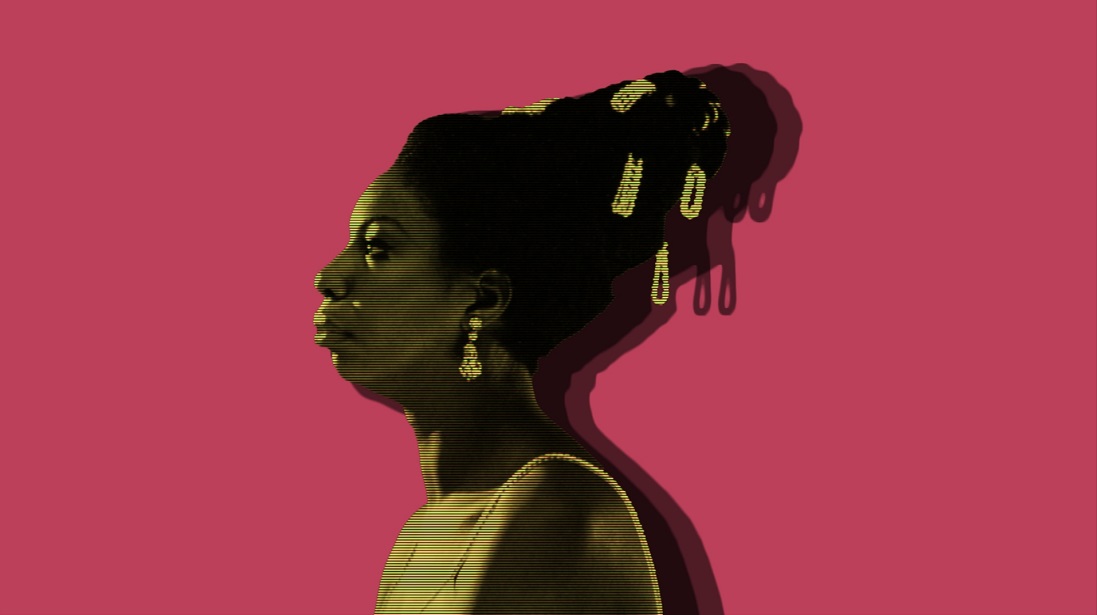Nina Simone made a name for herself and her legacy within Black music and it metamorphosed into the expression of other female artists.
There are names that are tied to past generations and are thus seen as old. We don’t come across as many names like Iris, Clifford, Otis, Mae Bell, Clyde or Ruth as they are associated with eras existing long before 2020. We won’t hear many at gender reveal parties, but we’re more likely to come across these names when speaking of our grandparents. Eunice, a woman who sang songs that feel like the weight of and the moods experienced while pulling slave ship-wrecked wood from the bottom of the ocean floor, changed the name given to her at birth. In the 1950s, Eunice Kathleen Waymon gave way to Nina Simone as her chosen moniker.
This change hinted at Nina’s path to perpetual cultural relevancy. Her smooth, yet deep voice both stirred and soothed souls. Nina’s mood would prove to be classic and forever available to tap into. Nina’s artistry was rooted in love for Black people, Black music and appraisal of America’s dealings with both. As Nina was influenced by Billie Holiday, she in turn influenced generations after her. To celebrate the life and birthday of the “High Priestess of Soul”, let’s look at six women who are extensions of Nina’s creative, activist and spiritual legacy.
Melanie Charles
Similarly to Nina, the Brooklyn born, Haitian virtuoso, Melanie Charles moves between the waves of soul, jazz, opera, gospel music and more with her voice and flute. Charles’ sound is a nod to the past and an embrace of the future. That past is deeply rooted in the influence of Nina’s riveting, drama-fueled vocal styling. Charles trained under jazz masters Reggie Workman, Bobby Sanabria, Junior Mance, Janet Lawson, Carla Cook, and Billy Harper. Charles’ experimental leanings has shown up in her self-produced mixtape ‘The Girl with the Green Shoes,’ under her alter ego The Birth of D’Flower. She vows to Make Jazz Trill Again, and Nina with her radical performance style, would be proud.
Lauryn Hill
The artist who probably gets the most comparisons to the queen herself and at the least, is credited with connecting a generation to Nina is Ms. Lauryn Hill. The deep richness of Ms. Hill’s voice alone contributes to the contrast, but her passionate delivery rooted in the physics of Black liberation is the genetic link to Nina. Ms. Hill’s cover of “Feeling Good” from the “Nina Revisited: A Tribute to Nina Simone”, reminds us why.
Rhiannon Giddens
The amazing thing about Rhiannon Giddens is that her folk oriented music is even larger than her prestigious accolades. The MacArthur Genuis sings the stories of a people that read like Ta Nehisi Coates’ “The Water Dancer’ and feel like the ancestral memories of America’s previous centuries waking up in its offspring. The opera-trained vocalist and banjo player has covered Nina Simone’s rendition of “Black is the Color”. Rhiannon and Nina share a birthday, but they also share the nuance that comes from classical training fused with folk ways of singing.
Tracy Chapman
Tracy is another heir to the folk tradition and is kin to the artistry of Nina Simone. Although she has consistently been compared to artists such as Joan Baez, Joni Mitchell and Bob Dylan, Chapman’s musical upbringing included Black cultural top 40 hits from the likes of Curtis Mayfield, Gladys Knight, Mahalia Jackson and Shirley Caesar. Similar to Nina’s delivery, Tracy’s expression of her politics is simple, yet you can tell she is adamant about them in a similar way Nina was. One of the most beautiful ways Tracy resembles Nina is the flight in her vibrato.
Farrah Boule
Another artist who abstracts Nina Simone in hip hop form is Farrah Boule. The deliberateness of Farrah’s vocal delivery is reminiscent of Nina’s commanding speech. Farrah’s deep, haunting yet soothing voice captivates in a way that if Nina herself rapped today, it would sound like Farrah performing her song “Docks”. The Harlem Chanteuse’s records “Oval Metal” and “Truth” both sample Nina’s “Plain Gold Ring” and “Four Women” respectively. Farrah’s delivery reminds us of Nina in a few of her forms.
Buika
Born on the Spanish island of Mallorca to Equatorial Guinean parents, Buika is a musical comet. The raspy, guttural quality of her voice identifies her, but the wideness of her delivery is also reminiscent of Nina’s most passionate side. The fiery vocal release of Buika’s notes is magnificient and makes the case for African diasporic tonal continuity felt across waters and between she and Nina.
Honorable Mention: Janelle Monae
Janelle is all her own, yet she is also the sum of so many artists before her. With her protest anthem “Hell You Talmbout”, she earned the mention for serving political and social objection in song. This is “Mississippi Goddam” revisited and Nina certainly would have joined in.



